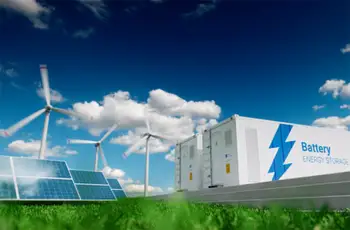How big is the energy storage market?
By R.W. Hurst, Editor
Energy Storage Systems Course
Our customized live online or in‑person group training can be delivered to your staff at your location.

- Live Online
- 12 hours Instructor-led
- Group Training Available
Download Our OSHA 3075 Fact Sheet – Understanding Electrical Hazards in the Workplace

- Learn the effects of electric current on the human body
- Understand OSHA safety standards and protective devices
- Discover essential lockout/tagout and grounding practices
How Big Is Energy Storage Market? Global battery storage (BESS) capacity and revenues surge across utility-scale, C&I, and residential segments, driven by lithium-ion, inverters, EMS, renewables integration, and ancillary services, with strong double-digit CAGR.
How Big Is Energy Storage Market?
Estimated at tens of billions USD, growing at double-digit CAGR led by grid-scale BESS.
✅ Utility-scale, C&I, residential BESS lead capacity and revenue growth
✅ Lithium-ion dominates; LFP growing for safety, cost, cycle life
✅ Value stack: inverters, EMS, EPC, O&M, and ancillary services
The energy storage market is increasing as more and more countries, and companies recognize the importance of energy storage for the transition to a clean energy future; according to a recent report by BloombergNEF, the global energy storage market is expected to reach 741 gigawatt-hours (GWh) by 2030, up from just 17 GWh in 2015. Analysts tracking growth in utility-scale energy storage note that deployment pipelines are accelerating worldwide, reflecting the same trend.
The energy storage market is also becoming increasingly diversified, with various technologies and applications being developed and deployed. While lithium-ion batteries are currently the most common form of energy storage, other technologies such as flow batteries, compressed air energy storage, and pumped hydro storage are also being developed and deployed. Emerging chemistries and thermal approaches are also being explored to meet the unique requirements of long-term energy storage across seasonal balancing needs.
For readers new to the topic, what is energy storage is a concise primer on the fundamental concepts and use cases.
In the United States, the energy storage market is also growing rapidly. According to the US Energy Storage Monitor report, the US energy storage market grew by 240% in 2020, with a total of 2,156 megawatt-hours (MWh) of storage capacity installed. As of 2021, the US has an estimated 1,650 MW of storage capacity installed, with states such as California, Texas, and Hawaii leading the way in deployment. For project examples and policy context, see how energy storage systems in the USA span residential, commercial, and utility markets.
FREE EF Electrical Training Catalog
Download our FREE Electrical Training Catalog and explore a full range of expert-led electrical training courses.

- Live online and in-person courses available
- Real-time instruction with Q&A from industry experts
- Flexible scheduling for your convenience
The growth of the energy storage market is driven by various factors, including the increasing adoption of renewable energy sources, the need to improve grid stability and reliability, and the desire to reduce greenhouse gas emissions and combat climate change. As more and more countries set ambitious targets for reducing their greenhouse gas emissions, the demand for energy storage is only expected to grow. These drivers underscore why we need energy storage to integrate variable renewables and enhance resilience.
In addition, the declining cost of energy storage technologies is making them increasingly cost-competitive with traditional fossil fuel-powered plants. As the cost of lithium-ion batteries and other forms of energy storage continues to decline, they are expected to become an increasingly attractive option for meeting peak power demand and improving grid stability. Beyond economics, energy storage and the grid interact to provide frequency response, peak shaving, and capacity value.
Overall, the energy storage market is poised for significant growth in the coming years, driven by a combination of market forces and government policies to reduce greenhouse gas emissions and promote the adoption of renewable energy sources. This trajectory reinforces why energy storage is important for delivering reliability and decarbonization at scale.



